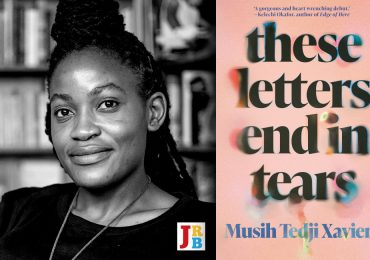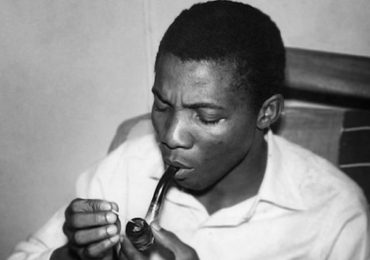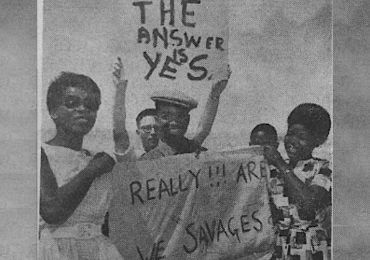For Francis on the occasion of his sixtieth birthday.
I met Francis B Nyamnjoh, now a world-renowned professor of social anthropology at the University of Cape Town, twenty years ago at a sociology conference in East London. It was as casual and inconspicuous as any ordinary meeting between two fairly—at first glance—laid back human beings could be. But what a ride it has been since.
Aside from long and intense phone conversations, there have been only a few other meetings, as we lived in different locations: he in Gaborone, Dakar, and cities in his native Cameroon, while I toiled in Ibadan, Durban and Pretoria. Eventually we converged in Cape Town where, finally, our conversations could be in person again.
Before then, over the phone, we’ve had rather delicious occasion to dwell on virtually everything that’s important: work, life, family, politics—and of course topics of Africanity.
Conversations with Francis are invariably replete with unexpected conceptual turns, volte faces and delightful linguistic crescendos. He can flesh out an intellectual genealogy for any given subject matter. In his inimitable way, he suggests we have to be certain about the foundations of the viewpoints and theses we are attempting to establish. Talk to Francis, and you learn how we must rigorously scrutinise the ramifications and antecedents of an issue, no matter how remarkably unintellectual it may appear to be on the surface.
Tellingly, Francis usually makes his points in a tongue-in-cheek manner, one that is full of good humour, sometimes garnished and finessed with well-appointed sprinklings of acerbity, plus the prerequisite reserves of heart-warming humanism. These are all traits common to the finest, and most decent, minds to be found among intellectuals. If it might be said of his late friend, Professor Harry Garuba, that he could be regarded as a generous and curiously maternal ‘father of the world’, Francis, on the other hand, possesses the inexhaustible resources—least of which is endurance—of a progenitor fastened to a limitless reservoir of emotional and material nourishment. And perhaps because he lacks ostentation, almost consciously avoiding it, he never seems to be depleted. Francis is a genuinely modest man, which is all the more impressive because he seeks to be frankly and utterly generous with those whom he considers to be his dear friends.
So what comes to mind when one thinks of Francis B Nyamnjoh? I recall a man who fully appreciates the intrinsic absurdities of humanity yet constantly strives to transcend them. I recall an individual who understands the untold havoc and devastation caused by the possession of power, and finally, I recall a humanist who takes pride in the virtues of moderation as an integral survival strategy and as a self-replenishing source of conviviality.
There are many people who are indebted to Francis in both personal and professional ways. Nonetheless, he isn’t a man who thinks in terms of relationship arithmetic, based on an exchange of debts and patronage. Instead, for him, relationships are to be viewed as a tactile and ever-expanding network of interconnections that are nourished by humour and selfless generosity.
Having dwelled on what Nyamnjoh is like as a human being, it is also necessary to say a few words about portions of his work. Together with a few other like minds, he is one of the brains that established the African publishing powerhouse Langaa Research and Publishing Common Initiative Group (Langaa RPCIG), a transformational outfit that has remodelled the path of African publishing. The imprint releases over forty books per annum in both English and French, covering all areas of African intellection. Its footprint can be perceived in all regions of the continent.
Indeed, the idea for Langaa RPCIG came about when Nyamnjoh was the head of publications at the Council for the Development of Social Science Research in Africa (CODESRIA), in Dakar, from 2003 to 2009. At CODESRIA, Nyamnjoh realised that the continental research network is the main think tank, as it were, in terms of Africa’s knowledge production. During the time he was at the helm of publications, over ninety per cent were the result of research, conversations and activities around CODESRIA’s core programmes. As such, the council didn’t have the capacity to publish much more than its own material. This situation led Nyamjoh to think of other methods that could be employed as complementary measures. The late Tanzanian scholar and novelist Chachage Seithy L Chachage provided a further fillip. Chachage, who had written most of his novels in Swahili, approached CODESRIA as a way of exploring publishing options for his creative output. Of course, there was no room there for publishing literary works. Nyamnjoh thus identified that there was indeed a lacuna in the creative conversations that African authors were having or needed to initiate, and that this was a space that required some robust engagement in terms of publishing and institutional support. ‘So, we could see that there was a gap out there despite the magnificent work that CODESRIA was doing. There was a gap there, of conversations going undetected and not being brought in to be part of the fold of knowledge production on Africa. And that is why I thought that Langaa could attend to that,’ he told me in a recent interview.
The subject of Francis’s latest book, Incompleteness: Populism, Donald Trump and Citizenship (2022), may be surprising, but the seed for his latest offering was sown, interestingly enough, by the #RhodesMustFall movement in South Africa, which commenced at the University of Cape Town. Francis is intrigued by controversial historical figures. Cecil John Rhodes, the nineteenth-century colonial overlord, was catapulted by a grandiloquent vision to refashion southern Africa according to the dreams and madness of a loyal subject of the British Empire. Trump was propelled by a similar kind of grandiloquence, mediated by quite a different set of political and historical circumstances. He vowed to ‘Make America Great Again’ via a truly quixotic amalgam of populism, rank opportunism and pandering to myopic Christian fundamentalism, all laced with the fears and resentments that characterise the resurgent white supremacist movement in that land.
In Francis’s own words: ‘I began to see similarities between Cecil Rhodes and Donald Trump … I decided to focus on how one could understand Trump and his brand of populism from the vantage point of citizenship, and again, drawing on an idea that has characterised my scholarship and my thinking and my writing for a very long time, the idea of incompleteness and mobility as universals.’
Apart from the well-known academic themes of his—which also include xenophobia, belonging, occult and predatory capitalisms, and chronic postcolonial anomie—Francis’s larger project also includes the abstract but fundamentally important concept of conviviality. To our great benefit, he is that characteristic personified. Francis possesses the patience, equanimity and wisdom of a rural sage—indeed, he seems to have been born a tribal elder, an ageless beacon that casually transmits its innumerable illuminations, a source of myriad lights amid a glutinous ocean of bigotry, ignorance and mean-spiritedness. Francis B Nyamnjoh unassumingly carries forth his radiance, and always seeks to forget, or at least ignore, the applause he truly deserves.
- Sanya Osha, an author of several books, works at the Institute for Humanities in Africa (HUMA), University of Cape Town.





